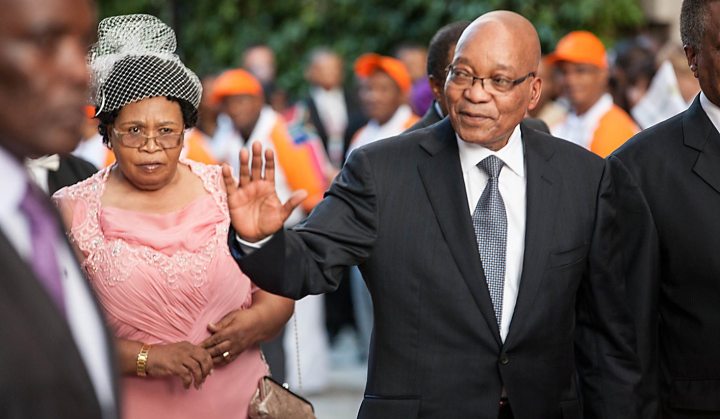South Africa
The (internal) South African reputation crisis

The country’s reputation is steadily improving around the world but locals are pessimistic about South Africa. This according to the latest Reputation Institute survey released Thursday night in Johannesburg. The challenge is: how can we truly acknowledge South Africa’s achievements while at the same time deepening our commitment to facing the challenges? By GREG NICOLSON.
Open SA Good News and you’ll find a lot to cheer about. Read the World Economic Forum’s Global Competitiveness Report and you’ll find South Africa ranked first for auditing and reporting standards, efficacy of corporate boards and protection of minority shareholders’ interests; second for the high accountability of its private institutions; and third for financial market development. Look at the figures on houses built as well as water, sanitation and electricity provided since 1994 and you’ll be impressed. Check out the number of women in parliament and the slow but gradual racial transformation.
There are positives in South Africa and members of the G8 (Canada, France, Germany, Italy, Japan, Russia, UK and US) agree. The Reputation Institute’s latest report ranked South Africa 28 out of 50 in terms of a good reputation. Since 2009, its score has moved from 44 to 51, putting it behind countries like Brazil and the US but ahead of India, China and Russia. The report saw a significant jump on 2013’s first quintile figures, which were marred by the Marikana massacre and the Oscar Pistorius court case.
What the G8 (or at least the 700 people from fairly diverse backgrounds in the G8 who were surveyed) liked most about South Africa is the friendliness, safe environment and its responsible contribution to the global community. Nelson Mandela’s “critical but stable” condition is said to have helped and the state visits from the BRICS countries and America also had a positive impact.
South Africans weren’t so optimistic. Trevor Ndlazi, Reputation Institute manger for SA, said: “Many of us live in a perpetually hyped-up state in which we wait on tenterhooks and in a state of near panic for the next catastrophe to befall us as a country. While we are bombarded daily with experiences and news of things that are going wrong in the country, South Africans would do well to gain a wider and more positive perspective on the overall state of the country as seen by the outside world.”
South Africans gave themselves a reputation score of 33, a huge drop from the G8 rating (and from South Africans’ past ratings of the country), comparable to the G8’s views on Pakistan and Iran. It’s beautiful and enjoyable, said those surveyed, but does not operate effectively, is not safe, doesn’t have a well-educated workforce, and does not value education.
Brand South Africa chief executive Miller Matola said it’s “because we are too hard on ourselves as South Africans”. He said the challenges cannot be ignored, but there “are more reputation enhancers than those that detract from our reputation”. He cited the National Development Plan, response to Marikana and infrastructure rollout as examples that SA is taking action towards a positive future. “It shows and sends signals on a country that’s on the move, a democracy at work.”
The South African survey was held online with limited respondents, but the researchers were confident they captured the country’s views. The results seem to reflect the dwindling local consumer and business confidence.
Dr Vuyo Mahlati, a member of the National Planning Commission and president of the International Women’s Forum South Africa, said locals view the country differently to foreigners. “For us, we are worried about issues of jobs. We are worried about issues of my child’s education,” she told the crowd at the University of Witwatersrand’s Business School. “We are still finding jobs that are being lost, people think of local context,” said Mahlati. She pointed out a glaring contrast. South Africa has many successful women, yet its gender-based violence problem is horrific. Here, local problems overshadow SA’s positives, she said, but the key challenge is to keep shining a light on the problems while also emphasising the achievements.
Why is it important? The study found strong correlations between the country’s reputation and the willingness to visit, invest, live, work, study and buy in South Africa. It’s often cited that SA loses foreign direct investment because of the country’s image and locals are sitting on R500-billion in profit surplus that could be invested, but instead is in banks.
Many of the comments at the report’s release echoed the recent thoughts of President Jacob Zuma. He continues to point out that the media is not telling South Africa’s story of success and is instead focusing on the negative, offering a one-sided view of failure while ignoring “the largely untold” South African story of achievement.
“It starts with you,” said one speaker, encouraging the crowd not to wait for the state to fix the country’s problems. One of the key issues, however, isn’t that South Africans don’t want to be proud, nor that they don’t know many of the positive changes since 1994. The problem isn’t that leaders like President Zuma want to tell a story of hope and achievement. The problem is that these leaders do not sound sincere when they are talking about the challenges the country still faces, the bread and butter issues citizens thought would have changed already. Trying to recognise achievements starts to look self-serving and deepens the mistrust.
It drives anyone concerned about those issues crazy. The insincerity sounds like one is glossing over the day-to-day lived reality. The challenge is: how can we truly acknowledge South Africa’s achievements while at the same time deepening our commitment to facing the challenges? DM
Photo: President Jacob Zuma delivered his fourth state of the nation address in Cape Town on Wednesday. Parliamentarians came out in style and reveled in the chance to talk fashion on the red carpet. Cape Town, South Africa, 14 February 2013. (Greg Nicolson)


















 Become an Insider
Become an Insider